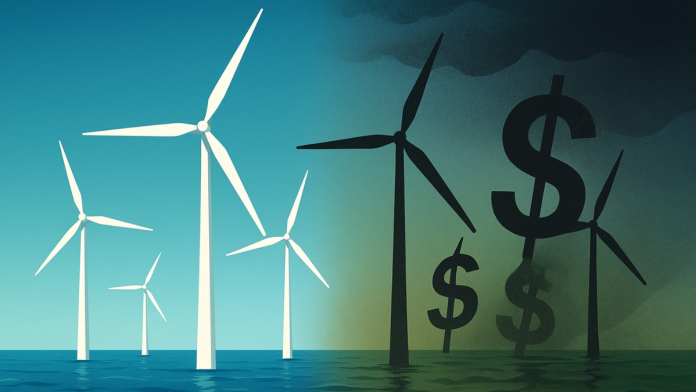Taiwan has been racing to switch from fossil fuels to renewable energy. Offshore wind farms have been at the center of this plan, with the island setting big goals for clean energy in the coming years. But a corruption scandal has now shaken the industry.
A local government official was found guilty of using his power to extort a major foreign wind developer from Germany. The company, known worldwide for building wind farms, has been active in Taiwan’s offshore wind sector.
The court found that the official pressured the company by encouraging or organizing protests against its projects. These protests were not organic but used as a tool to put pressure on the developer. The aim was to force the company into giving in to the official’s demands. The details of what the official wanted in return were not made fully public.
At the same time, two officers from the German wind company were convicted in a separate case involving bribery. Although information is limited, it shows that the company’s own staff engaged in corrupt practices. This included giving bribes, though who received them or what the officers expected in return has not been disclosed. Together, these convictions reveal both outside pressure and internal misconduct that damaged the company’s work in Taiwan.
TSMC reportedly asked to buy 49% of Intel to secure U.S. tariff cuts for Taiwan
Blow to Taiwan’s Renewable Energy Drive
For years, Taiwan has marketed itself as a regional leader in offshore wind. The island’s government set a target of installing 5.6 gigawatts of offshore wind capacity by 2025, with plans to more than double that by 2035. Strong winds along Taiwan’s coast make it one of the most promising spots for wind power in Asia.
But the scandal is now casting a shadow on these ambitions. The extortion case highlights how political influence can be misused to block or delay projects. A single local official was able to exploit public protests, showing the risk of political pressure at the community level.
On the other side, the bribery case involving the company’s officers shows that foreign developers may cut corners when faced with challenges in a new market. Both sides of the case undermine confidence in how offshore wind projects are being managed.
Such incidents are not only embarrassing for the companies and authorities involved, but they can also scare away investors. Building large offshore wind farms costs billions of dollars. If investors feel there are corruption risks, they may think twice before funding new projects. That could slow down Taiwan’s green energy rollout, which depends heavily on foreign expertise and capital.
178 global probes link Panama companies to Venezuelan corruption schemes worth billions
Stakeholders Caught in the Scandal
The German wind developer at the center of the scandal is now part of Skyborn Renewables, which is owned by Global Infrastructure Partners. This global investment firm manages billions of dollars in assets and has a strong interest in renewable energy. But now, its portfolio company is facing reputational damage in one of Asia’s most important energy markets.
Taiwanese authorities, on their part, have moved to address the issue. By securing convictions against both the local official and the foreign company’s officers, the judicial system has shown it is willing to punish corruption. Even so, the scandal raises questions about how projects are approved and how communities are managed during development.
For Taiwan’s clean energy sector, this case is a reminder of the difficulties foreign developers face when working in new regions. Offshore wind farms require not only engineering expertise but also community trust and transparent dealings with local authorities. When corruption enters the picture, the costs rise, and the projects risk being delayed.
The scandal has left its mark on Taiwan’s clean energy story. What was supposed to be a symbol of progress toward a greener future has now been tainted by dirty money and misconduct.


